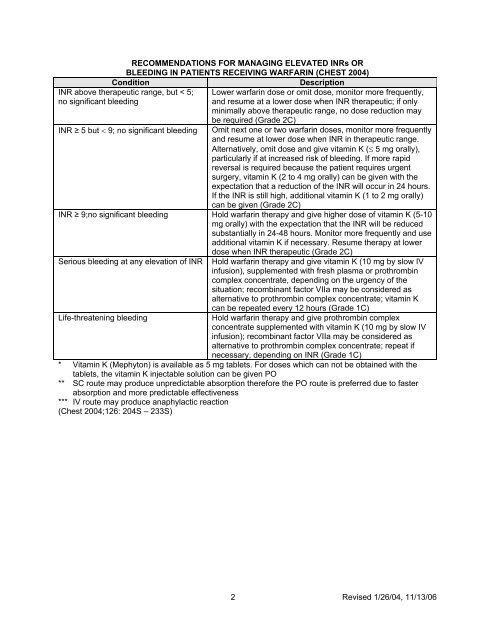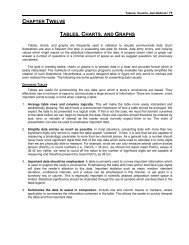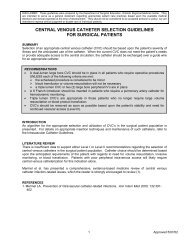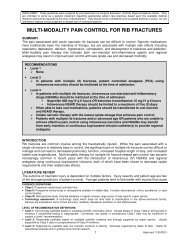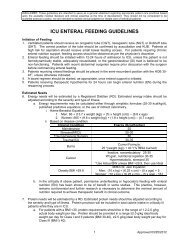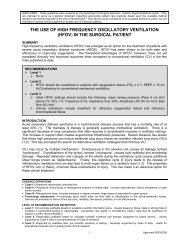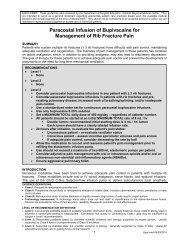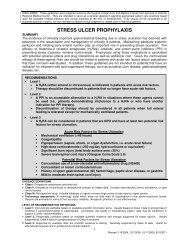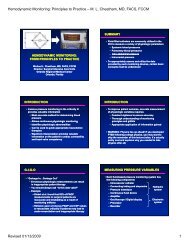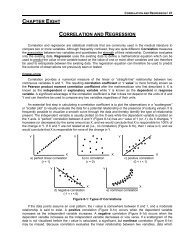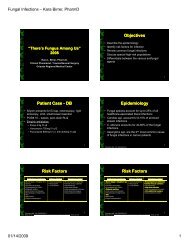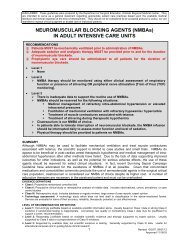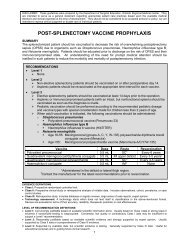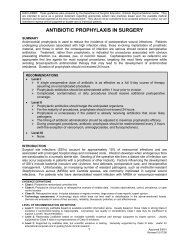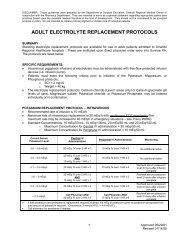warfarin (coumadin®) information card - SurgicalCriticalCare.net
warfarin (coumadin®) information card - SurgicalCriticalCare.net
warfarin (coumadin®) information card - SurgicalCriticalCare.net
You also want an ePaper? Increase the reach of your titles
YUMPU automatically turns print PDFs into web optimized ePapers that Google loves.
RECOMMENDATIONS FOR MANAGING ELEVATED INRs OR<br />
BLEEDING IN PATIENTS RECEIVING WARFARIN (CHEST 2004)<br />
Condition<br />
Description<br />
INR above therapeutic range, but < 5;<br />
no significant bleeding<br />
INR ≥ 5 but < 9; no significant bleeding<br />
Lower <strong>warfarin</strong> dose or omit dose, monitor more frequently,<br />
and resume at a lower dose when INR therapeutic; if only<br />
minimally above therapeutic range, no dose reduction may<br />
be required (Grade 2C)<br />
Omit next one or two <strong>warfarin</strong> doses, monitor more frequently<br />
and resume at lower dose when INR in therapeutic range.<br />
Alternatively, omit dose and give vitamin K (≤ 5 mg orally),<br />
particularly if at increased risk of bleeding. If more rapid<br />
reversal is required because the patient requires urgent<br />
surgery, vitamin K (2 to 4 mg orally) can be given with the<br />
expectation that a reduction of the INR will occur in 24 hours.<br />
If the INR is still high, additional vitamin K (1 to 2 mg orally)<br />
can be given (Grade 2C)<br />
INR ≥ 9;no significant bleeding Hold <strong>warfarin</strong> therapy and give higher dose of vitamin K (5-10<br />
mg orally) with the expectation that the INR will be reduced<br />
substantially in 24-48 hours. Monitor more frequently and use<br />
additional vitamin K if necessary. Resume therapy at lower<br />
dose when INR therapeutic (Grade 2C)<br />
Serious bleeding at any elevation of INR<br />
Life-threatening bleeding<br />
Hold <strong>warfarin</strong> therapy and give vitamin K (10 mg by slow IV<br />
infusion), supplemented with fresh plasma or prothrombin<br />
complex concentrate, depending on the urgency of the<br />
situation; recombinant factor VIIa may be considered as<br />
alternative to prothrombin complex concentrate; vitamin K<br />
can be repeated every 12 hours (Grade 1C)<br />
Hold <strong>warfarin</strong> therapy and give prothrombin complex<br />
concentrate supplemented with vitamin K (10 mg by slow IV<br />
infusion); recombinant factor VIIa may be considered as<br />
alternative to prothrombin complex concentrate; repeat if<br />
necessary, depending on INR (Grade 1C)<br />
* Vitamin K (Mephyton) is available as 5 mg tablets. For doses which can not be obtained with the<br />
tablets, the vitamin K injectable solution can be given PO<br />
** SC route may produce unpredictable absorption therefore the PO route is preferred due to faster<br />
absorption and more predictable effectiveness<br />
*** IV route may produce anaphylactic reaction<br />
(Chest 2004;126: 204S – 233S)<br />
2 Revised 1/26/04, 11/13/06


